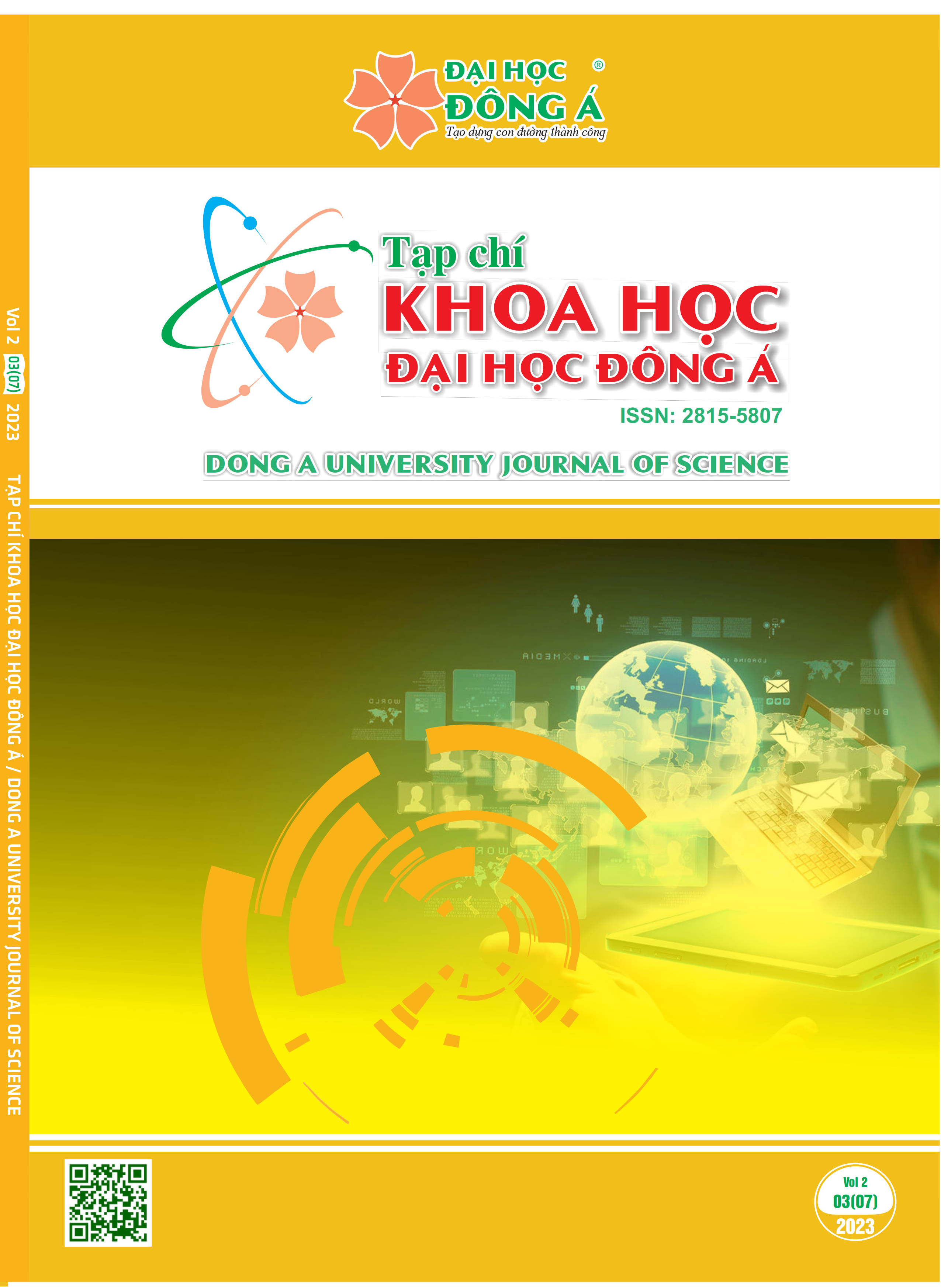Đánh giá của du khách và sinh viên du lịch về tầm quan trọng của Kỹ năng mềm và Kỹ năng giao tiếp trong hoạt động du lịch
Nội dung chính của bài viết
Tóm tắt
Lĩnh vực du lịch đang ngày càng phát triển mạnh mẽ, đóng góp đáng kể vào nền kinh tế và xã hội của một quốc gia, việc nâng cao chất lượng dịch vụ du lịch và mang đến trải nghiệm tốt cho du khách đang trở nên cực kỳ quan trọng. Đối với lực lượng lao động du lịch, không chỉ yêu cầu sự thành thạo về kiến thức chuyên môn, mà còn đòi hỏi các kỹ năng mềm (KNM) và kỹ năng giao tiếp (KNGT). Trong nghiên cứu này, chúng tôi đã sử dụng phần mềm SPSS 25.0 để thực hiện việc thống kê và phân tích các đặc điểm của mẫu nghiên cứu, dựa trên số liệu thu thập từ khảo sát ý kiến của du khách và sinh viên du lịch. Để đảm bảo tính tin cậy của thang đo, chúng tôi đã phân tích và sử dụng hệ số Cronbach’s Alpha. Đồng thời, chúng tôi cũng áp dụng phương pháp kiểm định T-test và one-way ANOVA để so sánh quan điểm giữa nhóm du khách và sinh viên về một số biến nhân khẩu học. Kết quả nghiên cứu đã cho thấy rằng cả du khách và sinh viên du lịch đánh giá rất cao tầm quan trọng của KNM và KNGT trong hoạt động du lịch. Điều này có ý nghĩa quan trọng đối với việc đào tạo và phát triển nguồn nhân lực trong ngành du lịch, nơi mà cả hai kỹ năng này đóng vai trò quan trọng trong việc cung cấp dịch vụ du lịch có chất lượng và tạo sự hài lòng cho du khách.
Chi tiết bài viết
Từ khóa
kỹ năng giao tiếp, kỹ năng mềm, trải nghiệm du lịch, khách du lịch, sinh viên du lịch
Tài liệu tham khảo
Brownell, J. (2009). “Fostering service excellence through listening: What hospitality managers need to know”. Cornell Hospitality Report. Vol. 9, No. 6, 6-18.
Coffelt, T.A., Baker, M.J., and Corey, R.C. (2016). “Business communication practices from employers’ perspectives”. Business and Professional Communication Quarterly, Vol. 79, No. 3, 300-316.
Conrad, D., Newberry, R. (2012). “Identification and Instruction of Important Business Communication Skills for Graduate Business Education”. Journal of Education for Business, Vol. 87, No. 2, 112-120.
Hair, J. F. (2009). Multivariate data analysis.
Jackson, D. (2014). “Business graduate performance in oral communication skills and strategies for improvement”. The International Journal of Management Education. Vol. 12, No. 1, 22-34.
Jiang, L. and Alexakis, G. (2017). “Comparing students' and managers' perceptions of essential entry-level management competencies in the hospitality industry: An empirical study”. Journal of Hospitality, Leisure, Sport & Tourism Education. Vol. 20, 32-46.
Jones, C.G. (2011). “Written and computer-mediated accounting communication skills: An employer perspective”. Business Communication Quarterly. Vol. 74, No. 3, 241-271.
Lolli, J. (2013). “Perceptions of the importance and preparedness of interpersonal communication skills of the entry-level hospitality leader: Implications for hospitality educators”. Journal of Teaching in Travel & Tourism. Vol. 13, No. 4, 354-373.
Nunnally, J.C. (1978). Psychometric theory. 2nd Edition, McGraw-Hill, New York.
Robles, M.M. (2012). “Executive Perceptions of the Top 10 Soft Skills Needed in Today’s Workplace”. Business Communication Quarterly. Vol. 75, No. 4, 453-465.
Siddiq, F., Scherer, R., and Tondeur, J. (2015). “Teachers’ Emphasis on Developing Students’ Digital Information and Communication Skills (TEDDICS): A New Construct in 21st Century Education”, Computers & Education. No. 92-93, 1-14.
Succi, C. and Canovi, M. (2019). “Soft skills to enhance graduate employability: Comparing students and employers perceptions”. Studies in higher education. 1-14.
Wall, E.A. and Berry, L.L. (2007). “The combined effects of the physical environment and employee behavior on customer perception of restaurant service quality”. Cornell Hotel and Restaurant Administration Quarterly. Vol. 48, No. 1, 59-69.
Weber, M.R., Lee, J.J. and Crawford, A. (2019). “A suggested best practices for enhancing performance of soft skills with entry-level hospitality managers”. Anatolia: An International Journal of Tourism and Hospitality Research. Vol. 31, No. 1, 76-87.
Wesley, S.C., Jackson, V.P. and Lee, M. (2017). “The perceived importance of core soft skills between retailing and tourism management students, faculty and businesses”. Employee Relations. Vol. 39, No. 1, 79-99.
Wu, Y.C., Tsai, C.S., Hsiung, H.W., and Chen, K.Y. (2015). “Linkage between frontline employee service competence scale and customer perceptions of service quality”. Journal of Services Marketing. Vol. 29, No. 3, 224-234.
Youssef, F. (2017). “The Role of Faculties of Tourism and Hotel Management in Developing the Etiquette and Communication Skills for Students within the Educational Community”. International Journal of Heritage, Tourism and Hospitality. Vol. 11, No. 3, 87-102.
Zehrer, A. and Mössenlechner, C. (2009). “Key competencies of tourism graduates: The employers' point of view”. Journal of Teaching in Travel & Tourism. Vol. 9, No. 3-4, 266-287.


